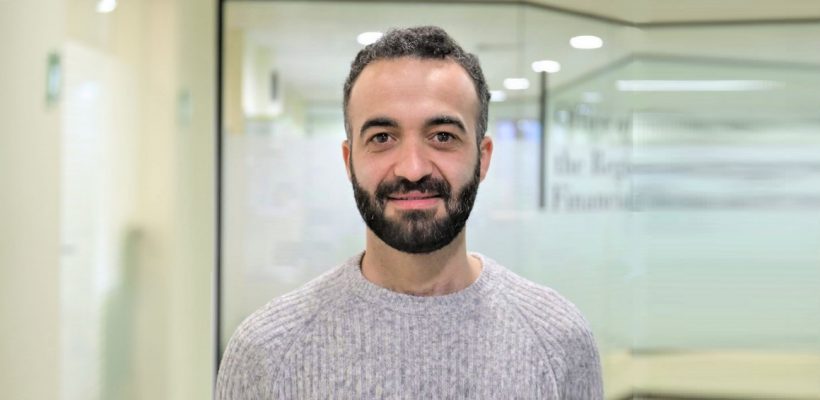
Instructor Story: Checking in with CSE’s Hakob Avetisyan
3 min readDr. Hakob Avetisyan joined the Akian College of Science and Engineering (CSE) of the American University of Armenia (AUA) in 2020 as adjunct lecturer. He teaches Introduction to Quantum Computing. Dr. Avetisyan holds a doctoral degree in quantum optics from Universidade Federal de Minas Gerais, Brazil. His research interests are quantum computing algorithms, quantum machine learning, noise mitigation techniques in quantum computation, and propagation of quantum light in random media.
Tell us about your academic background. How did you develop a passion for quantum computing?
My choice of professional specialization in quantum computing coincides with my decision to go abroad to pursue a PhD. I chose quantum optics as a specialization in Brazil’s Federal University of Minas Gerais, and successfully earned the degree four years later. Quantum optics is the first field to test experimentally the weird behavior of quantum phenomena. So I had a chance to learn and see that nature indeed behaves the way quantum physics predicts. Quantum computing is the area that leverages those weird phenomena as a resource to enable fundamentally new types of computation that speeds up many computations known today.
Coming back to Armenia in 2016, I wanted to capitalize on what I had learned, and two years later, I, along with three other scientists, set up a quantum computing research lab that aims to popularize, among other activities, the exciting field of quantum computing.
What brought you here to AUA? Tell us about your experience as a member of the AUA faculty.
As neither the state nor academia had a strategy for adopting quantum technologies in Armenia, it seemed to me (and to our lab) that we should take the responsibility for building a quantum ecosystem, starting on a small scale, but envisioning future expansion.
AUA has positioned itself as an innovative institution that quickly adapts to modern world developments in education. The pioneering inclusion of data science and machine learning disciplines in its curricula are just two examples. So I reached out to AUA with a suggestion to include quantum computing as part of its growing curriculum. It was initially thought that quantum computing requires (quantum) physics as a prerequisite but in fact, only background knowledge in linear algebra, complex numbers, and probability theory is sufficient to start an introductory course on quantum computing. Fortunately, AUA gave me the green light to teach, and since January 20, 2020, I have been enjoying my work at AUA. The good news is that the course is an elective one, so my students are those who actually want to learn quantum computing and who possess the mentioned required background, which makes the learning process more effective.
What do you think of today’s Armenian youth, judging from what you see at AUA? What is your perspective regarding the future of Armenian academia?
Today’s Armenian youth ‒ the “generation of independence” ‒ is very open-minded, with strong beliefs in freedom, independence, honesty, and the like. From another perspective, of what I have observed so far, many students either have their own startups or work in well-established companies. This indicates that they gain the necessary skill sets at AUA to be part of Armenian industry players. On the other hand, it might put at risk their potential to become world-class specialists if they dedicate less time to their studies, including education in master’s and doctoral programs. In this regard, I would recommend that Armenian academia regulates the process by supplying specialists to the industry toward the end of graduation from university and not in the early stages of higher education studies. In the long term, this will produce multiple benefits to both academia and industry. The future I would like to see is one where Armenia becomes a center of excellence in research-based education where people choose to come for a high-quality education. For that purpose, academia must find ways to constantly increase its global competitiveness and image by attracting professors/teachers that contribute to building such a prominence. This is what distinguishes AUA from others.
What does a professor at AUA dream about?
As a person passionate about teaching, I dream of a future where we have created and developed units in quantum technologies, where disciplines like quantum physics, quantum cryptography, and quantum simulations are taught both at the undergraduate and graduate levels, in a research-based approach, where students write capstone projects, scientific papers, and develop software for quantum technologies. Where we have worldwide collaboration agreements in terms of internships and exchange programs. Where the state adopts a quantum strategy related to, for example, long-term quantum-enhanced national security and there are specialists that are able to address it. Where the industry is forward-looking enough to include quantum technologies in their long-term strategies and business models. Ideally, I dream about a scenario where the three sectors, academia, the state, and industry work together side-by-side to trigger the virtuous cycle for the development of quantum technologies.
